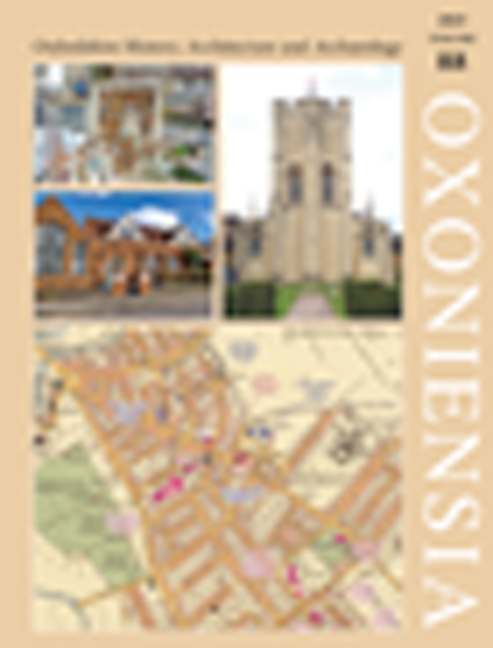Alice Blackford Millea, Oxford University: Stories from the Archives
Published online by Cambridge University Press: 15 May 2024
Summary
This is a handsome production, well-illustrated with fine photographs throughout. It comprises fifty-two sections or chapters, each focused on an item, usually a document of some kind. The sections are styled – appropriately, in the reviewer’s judgement – ‘stories’. Although the work does not claim to proffer anything like a complete history of Oxford University, its more-or-less chronological arrangement certainly covers considerable ground in manageable bites, presenting a selection of items from the early thirteenth to the early twenty-first centuries – a period of eight hundred years – which will leave an impress on readers of historical highlights conveyed through text and images.
The stories include accounts, for example, of assorted migrations and expansions of collected written records over centuries; of their organisation and of the creation of ‘finding aids’ from primitive to modern; of essential working collections of regulations and written agreements such as those held severally over the centuries by the chancellor or vice-chancellor, and proctors; of events that significantly affected or helped in a perpetual reinvention of the university; of frequent outbreaks of violence over centuries; of ‘town and gown’ struggles; of successive forms of examination, admission to degrees, and certification; of rules and mechanisms intended to maintain discipline; of the admission of women to the university; of piecemeal attempts to cope with the impinging modern world in its multifarious manifestations and demands; and so on. The ground covered is very broad indeed.
The need for, and significance of, archives for ‘remembering’ are duly stressed. Records were kept in earlier centuries explicitly for protective and polemical purposes rather than for what moderns might consider ‘heritage ends’ – mainly in fact for the defence of a person’s, family’s or corporation’s privileges and ‘possessions’ in the broadest of senses. Indeed, the contents of archives provide what the European Union might style an acquis communautaire – in this case, a cumulative body of valuable record. Several stories in this work appropriately emphasise the importance of critical relations with popes, monarchs and other authorities or powerful persons in Oxford University’s history.
The book also provides some detail about successive homes of the university’s records, and considers modern expedients for coping with the explosion of bureaucratic paperwork and electronic records in the modern university.
- Type
- Chapter
- Information
- Oxoniensia , pp. 381 - 382Publisher: Boydell & BrewerFirst published in: 2024

